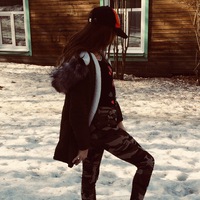
Упражнение 92. Спишите предложения. Слова, данные в скобках, поставьте внужной форме. Определите
вид связи нес- гласованных определений е определяемыми словами. 1. Толпа (ожидающие) вышла на перрон. 2. У меня была привычка (читать) лёжа. 3. Пение (дети) подняло мне на- строение. 4. Девочка в (тёмное платье) подошла ко мне, 5. Директор (завод выступил перед учениками. 6. На столе стояла ваза из (горный хрусталь). 0
0
 0
0
Ответы на вопрос
 Внимание! Ответы на вопросы дают живые люди. Они могут содержать ошибочную информацию, заблуждения, а также ответы могут быть сгенерированы нейросетями. Будьте внимательны. Если вы уверены, что ответ неверный, нажмите кнопку "Пожаловаться" под ответом.
Внимание! Ответы на вопросы дают живые люди. Они могут содержать ошибочную информацию, заблуждения, а также ответы могут быть сгенерированы нейросетями. Будьте внимательны. Если вы уверены, что ответ неверный, нажмите кнопку "Пожаловаться" под ответом.

Ответ:
1) Толпа ожидающих вышла на перрон(тип связи— управление)
2) У меня была привычка читать лёжа (тип связи— примыкание)
3) Пение детей подняло мне настроение (тип связи—управление)
4)Девочка в тёмном платье подошла ко мне (тип связи—управление)
5) Директор завода выступил перед учениками(тип связи— управление)
6) На столе стояла ваза из горного хрусталя (тип связи— управление)
 1
1
 0
0

Exercise 92: Fill in the Blanks and Identify the Type of Relationship
1. Толпа (ожидающих) вышла на перрон. 2. У меня была привычка (читать) лёжа. 3. Пение (детей) подняло мне настроение. 4. Девочка в (тёмном платье) подошла ко мне. 5. Директор (завод) выступил перед учениками. 6. На столе стояла ваза из (горного хрусталя).
In these sentences, we need to fill in the blanks with the appropriate forms of the words given in parentheses. We also need to identify the type of relationship between the underlined definitions and the words they define.
1. Толпа (ожидающих) вышла на перрон. - The word "ожидающих" is in the genitive case and is a participle form of the verb "ожидать" (to wait). It describes the noun "толпа" (crowd) and indicates that the crowd was waiting. The relationship between "толпа" and "ожидающих" is an attributive relationship, where the participle "ожидающих" acts as an adjective to describe the noun "толпа".
2. У меня была привычка (читать) лёжа. - The word "читать" is in the infinitive form of the verb "читать" (to read). It describes the noun "привычка" (habit) and indicates that the habit is reading. The relationship between "привычка" and "читать" is a predicative relationship, where the infinitive "читать" acts as a predicate to describe the noun "привычка".
3. Пение (детей) подняло мне настроение. - The word "детей" is in the genitive case and is a noun form of the word "ребёнок" (child). It describes the noun "пение" (singing) and indicates that the singing is done by children. The relationship between "пение" and "детей" is an attributive relationship, where the genitive noun "детей" acts as an adjective to describe the noun "пение".
4. Девочка в (тёмном платье) подошла ко мне. - The phrase "тёмном платье" is in the prepositional case and describes the noun "девочка" (girl). It indicates that the girl is wearing a dark dress. The relationship between "девочка" and "тёмном платье" is a prepositional relationship, where the prepositional phrase "в тёмном платье" acts as an adverbial modifier to describe the noun "девочка".
5. Директор (завод) выступил перед учениками. - The word "завод" is a noun that describes the noun "директор" (director). It indicates that the director is associated with a factory. The relationship between "директор" and "завод" is an appositive relationship, where the noun "завод" acts as an appositive to further describe the noun "директор".
6. На столе стояла ваза из (горного хрусталя). - The phrase "горного хрусталя" is in the genitive case and describes the noun "ваза" (vase). It indicates that the vase is made of mountain crystal. The relationship between "ваза" and "горного хрусталя" is an attributive relationship, where the genitive noun phrase "горного хрусталя" acts as an adjective to describe the noun "ваза".
Note: The relationships mentioned above are based on the grammatical analysis of the sentences and the provided words in parentheses.
 0
0
 0
0
Похожие вопросы
Топ вопросов за вчера в категории Русский язык
Последние заданные вопросы в категории Русский язык






-
Математика
-
Литература
-
Алгебра
-
Русский язык
-
Геометрия
-
Английский язык
-
Химия
-
Физика
-
Биология
-
Другие предметы
-
История
-
Обществознание
-
Окружающий мир
-
География
-
Українська мова
-
Информатика
-
Українська література
-
Қазақ тiлi
-
Экономика
-
Музыка
-
Право
-
Беларуская мова
-
Французский язык
-
Немецкий язык
-
МХК
-
ОБЖ
-
Психология
-
Физкультура и спорт
-
Астрономия
-
Кыргыз тили
-
Оʻzbek tili





















